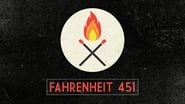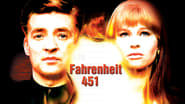Salubfoto
It's an amazing and heartbreaking story.
Erica Derrick
By the time the dramatic fireworks start popping off, each one feels earned.
Brenda
The plot isn't so bad, but the pace of storytelling is too slow which makes people bored. Certain moments are so obvious and unnecessary for the main plot. I would've fast-forwarded those moments if it was an online streaming. The ending looks like implying a sequel, not sure if this movie will get one
Geraldine
The story, direction, characters, and writing/dialogue is akin to taking a tranquilizer shot to the neck, but everything else was so well done.
christopher-underwood
The original Ray Bradbury story is great but even back in the day I didn't think was a very fine adaption. Things are made a little worse, I think, with Blu-ray, the fire engine looks distinctly toy like and the streets and houses like some model village. I realise now that there are further problems contributing to this not being the success it might have been. The major rift between Oskar Werner and Truffault must have been devastating for the young director, the lack of mutual language between him and many of the English crew another. But, most of all is the script itself, written without full knowledge of English. This certainly all goes to explain the stilted nature of the performances, which might have helped with a conventional science-fi but not here when this is more about the loss of books. The final scene in the woods, in the snow, is absolutely magical and here the director had a bit of luck (even if the actors didn't) because I understand the snow is real and was unexpected. Truffault did well to use it and so well.
Minh To Quang
A fair adaptation of a quite brilliant novel of the same name by Ray Bradbury (1953). As expected from a movie made in the 60's, there is no CGI or movie effects whatsoever, and for this reason the spirit of a dystopian work was uphold. However, the differences between this and the novel account for my personal preference for the novel: 1/All the scifi elements are dropped, which kinda enhances the idea that human intelligence slows down due to an oppressive society. This is not necessarily a bad thing, it's just I so much prefer the idea that society has developed great technology that enables one person to manipulate it and stands atop of the world. That's just more dystopian to me. 2/The ending scene really bothers me. I can't be the only one who hates it. Specifically the scene where a near-dying man recites Robert Louis Stevenson to his grandchild. To me, it feels as though it's just rote memorization without a precise and spontaneous appreciation and appraisal of the literary work.
Lechuguilla
Almost but not quite as boring as Tarkovsky's "Solaris" (1972), Fahrenheit 451 is a trial to sit through. Dialogue races along at half the speed of light, and it's helped not at all by thick accents.Characters are superficial, cold, and impersonal; I couldn't identify with any of them; maybe that was Director Truffaut's point; so be it, but they might as well have been stick figures. They are almost constantly in motion; their movements are annoyingly hyper. And given excessive dialogue, I can envision a script that must have been a thousand pages. The plot, because it is so simple, is highly repetitive. Yes, we get the point. In the future, a totalitarian regime will burn books to keep citizens from independent thinking.Truffaut seemed to think this underlying theme offers some radical vision of the future. Actually, it doesn't. The Nazis, under Hitler, burned huge numbers of books in bonfires in the 1930s. So much for the science fiction theme.As with most so-called "sci-fi" films, this one has aged poorly. What may have seemed so inventive and futuristic to some viewers in 1966 looks appallingly stodgy, fifty years later. What we have here is a film that tries to be daring and shocking, yet its underlying theme is culturally chronic. And the look and feel of the film reeks of old-fashioned 1960s James Bond.I find "Fahrenheit 451" perfunctory, uninspiring, dull, tedious, and dry. Except for the poor sound quality and difficult accents, it fits perfectly into the stereotypical image of a cheap American made-for-TV movie of the week. At least the run-time renders it less pretentious than "Solaris" (1972).
oOoBarracuda
Yet another film, like The Time Machine earlier this month, that makes me want to put down my copy of 1984, which I am also reading. The three of these dystopian futures predicting a world in which there is no written word, or the books themselves are purposely destroyed, makes me want to stay in my blanket fort all day clutching my copies of Harry Potter. In Fahrenheit 451, we meet Guy Montag (Oskar Werner) who works as a fireman; only in the future, firemen exist to start fires to burn books. One can quickly see that Montag is not fulfilled by his work. Even at the news that he will be receiving a promotion, he is not satisfied with himself. One day he meets a woman on the transport, Clarisse (Julie Christie) who seems to be fascinated by the simpleton soldier he seems to be. She sees more in Montag, soon after the audience realizes there is more to see in him as well. He goes about life as a loner, mindlessly carrying along with the other firemen at the station, and even more mindlessly with his wife at home. One can soon tell he is quite conflicted by his work to burn and destroy literature. One morning, a distressed Clarisse urges Montag to go with her to the school she has just been fired from. School is a terrifying place in this film. All the children dress the same and repeat the same learning rhymes no matter the age. Hearing the echoes through the building as Montag and Clarisse pass through the halls is deafening, as the audience realizes that this generation of children will never even know books to have existed. There is no turning back for Montag when one of the calls that his unit responds to is to burn an entire home library. The owner of the home repeats one of the rhymes drilled into the school children's heads before proceeding to set herself on fire among her books, because she would rather burn with them than live without them. It is at this moment that Montag stops feeling so alone, he knows there are people that feel as strongly about books as he does. He must flee to a place where he is accepted, and Clarisse knows just the place. She directs him to a land in which people memorize books and live amongst each other in the peace of their literature and free of the fear that anyone could ever take anything from them, because they themselves become the books.A future without written word looks like a scary place. Montag's home was barren and bleak, with only a telescreen for entertainment. Set design stood out the most for me throughout the film. It was a large task to undertake to make television look dismal, and the art department does a wonderful job of making this a reality. The sterile look of Montag's home made me feel as though I was watching life in a hospital. In a way we are watching life in a hospital, entertainment is mandated, emotions are nonexistent, and it seems as though everyone is just waiting to be done. As Montag remarked, in this world, you're not living, you're just killing time." In addition to the set design, the film was beautifully scored, as legendary Bernard Herrmann lent his talents to this film. Herrmann was also famously behind Citizen Kane, Psycho, and Taxi Driver. Scored beautifully, the audience is entranced by a world so different, and hopefully distant, from our own.The literal theme of burning books is not simply a relic of Nazi Germany. Even today, the fight over school textbooks rages on. We are constantly fighting a battle within our own society on what to permit and what to omit of our own history. This film serves as an adequate warning that we must accept even the darkest parts of our history must be reported and learned from or the all too real possibility of what took place in Fahrenheit 451 could be reality. On a less surface level, one can learn from seeing how much Montag went along sullenly through his life to do something that you find meaningful in life. Rendering your life as a big exercise in killing time will certainly leave you empty, as Montag was before he joined the book people. One must do what makes them come alive and do whatever that is fervently, as to live their own life to its fullest potential. Fahrenheit 451 provided a prudent example of the psychological pitfalls to avoid in life, a reminder we all need as we become submerged in simply going through the motions.As beautiful of a film as Fahrenheit 451 is, I would recommend this film to all students of film. A sensory experience such as this is not to be ignored by those seriously interested in filmmaking. It almost goes without saying that it is a necessity for any fans of Truffaut to see Fahrenheit 451, as well. I've been indebted to François Truffaut ever since the first time I saw Jules et Jim. I was completely blown away by this film and vowed to see as many works from the French auteur as I possibly could. Fahrenheit 451 did not disappoint, if I had the experience to do over, however, I would probably not watch this film at the same time as reading George Orwell's 1984, as I'm now searching the internet for safes for all my books






